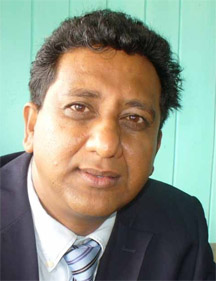While identifying the time it takes to have pending cases heard and determined as the most fundamental problem facing the system, new Attorney General Anil Nandlall has said that the appointment of part-time judges, lay magistrates and the setting up of a night court are among the possible solutions.
Nandlall, in an interview with the Government Information Agency (GINA), said that significant progress has been made with the Justice Sector Improvement Plan, which embraces many vital concepts designed to bring improvement and efficiency to the system.
According to GINA, the Plan includes an institutional building network within the system that will connect it to all its various departments as well as passing modern laws and implementing modern technology. The minister noted that since the judicial sector is largely manually driven, one component is to implement a number of measures that will bring speed and dispatch to the system.

Nandlall said though there is no single remedy that can address the problems confronting the administration of justice, boosting the human resource base and implementing modern technology are among the options being explored.
A component of the reform programme is training and boosting the human resource base in the system. “Certainly it must be recognized by now, that the complement of judges that exist is insufficient and inadequate to deal with the current workload of the cases,” Nandlall said. He suggested a remedy to this may include the appointment of part-time judges and instituting a Night Court. However, in order for this plan to come to fruition the Lay Magistrates Act passed in the National Assembly in 2010, has to be implemented.
“I believe that that Act will take away from trained Magistrates, a number of cases which are essentially of a trivial nature,” Nandlall said, adding that it would then leave “the important cases and offences” for the trained magistrates to hear. The minister also said that part-time judges and magistrates are likely to be recruited from a pool that may or may not comprise lawyers practicing at the bar, retired lawyers and other members of the judiciary. “Technology and bringing important technological apparatus on board is certainly one of the ways forward,” he also said, while adding that the sector is also exploring the possibility of having people avoid litigation and the court system. Nandlall said the system has been clogged with “a lot of unnecessary litigation” that have been filed and as such proposed improvements encompass areas such as mediation and conciliation.




